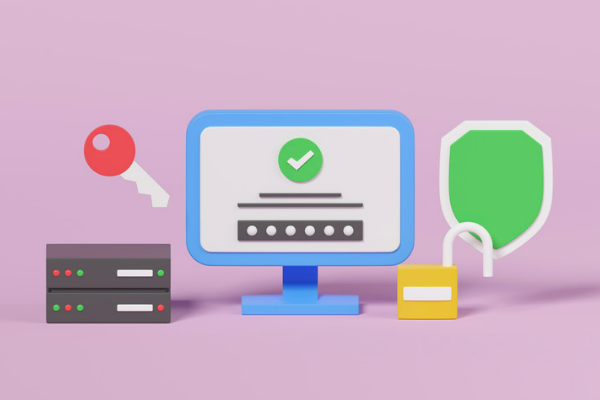
As data becomes an increasingly valuable asset, the importance of data integrity shouldn’t be overlooked. In this digital era, an unimaginable amount of information is created, shared, and stored online on a daily basis – around 97 zettabytes (or 97 trillion gigabytes) by the end of 2022.
More researchers have started to realize the importance of sharing and maintaining accurate data. A single error in your dataset significantly impacts the effectiveness of most decisions, often leading to a false view of your audience and a waste of resources.
That said, learning the fundamentals of data integrity and its process is vital when establishing trust in your findings. Below, we’ll explore the various aspects of data integrity, including its importance and how it can be achieved to ensure the health of your data.
What is Data Integrity?
Data integrity is the secure practice of collecting and storing accurate, complete, and consistent data across different formats over time. It’s essential for information security and gathering robust data in databases, applications, and systems.
Preserving the integrity of your data is an ongoing process, requiring you to adhere to certain procedures, standards, and rules during the design phase of your project. Following these guidelines helps maintain data health no matter how long information is stored or how frequently it’s retrieved.
Data integrity plays an important role in protecting your study from potential threats such as data losses, leaks, or breaches. To avoid these issues, proper handling of data is crucial. This involves data checks and validation procedures to ensure information is stored and managed appropriately.
Types of Data Integrity
Data integrity is divided into two types: physical data integrity and logical data integrity. Both are composed of methods that enforce data integrity across relational and hierarchical databases.
Physical Data Integrity
Physical data integrity is important for business continuity. It’s the assurance that data is accurate and complete as it is stored and accessed.
This involves safeguarding data against harmful forces such as natural disasters, power outages, database malfunctions, and malicious software – ensuring that physical storage media is reliable and not subject to physical degradation.
Logical Data Integrity
Logical data integrity is focused on the accuracy and consistency of data as it moves across relational databases. It’s enforced in database models during research design and data implementation. This type of data integrity ensures that information still makes sense in its context and that any changes performed will result in expected outcomes.
Logical data integrity is divided into four types:
- Domain integrity: Ensures that each piece of data stored in a domain conforms to a defined set of values and constraints. For example, you could require all values in a column to be unique, meet criteria, or fall within a specific range.
- Referential integrity: Values stored in a table are consistent with values stored in related tables. This is enforced by using foreign keys to reference a primary key in another table.
- Entity integrity: This uses the concept of primary keys (values that identify a piece of data) to ensure that data is unique and no fields are null.
- User-defined integrity: Users can provide additional rules and constraints on data to align with their requirements, allowing business rules to be incorporated into data integrity measures.
Why is Data Integrity Important?
Data integrity helps secure data accuracy and prevents information from becoming corrupted or manipulated. This is especially important in industries that use data to make actionable decisions, such as healthcare, legal, and business.
Information Security
Implementing data integrity measures protects your participants’ information and image against any unauthorized access, manipulation, or destruction. Without this, security threats are increased, causing organizations to be at risk of data breaches or other malicious attacks.
Regulatory Compliance
Data integrity ensures that organizations comply with applicable laws and regulations. Many industries are subject to stringent rules that require data to be accurate and secure. Practicing data integrity allows companies to avoid violations that could result in serious consequences, such as fines, sanctions, or other legal penalties.
Business Operations
Data integrity improves business operations by providing trustworthy data for decision-making, planning, and forecasting. This enables brands to maintain their competitive advantage, establish trust with customers, and protect their reputation.
Customer Satisfaction
Accurate and up-to-date data is crucial in building a clear picture of your target audience as they stand today. Data integrity allows marketers to leverage valuable and relevant customer data to inform their strategies – resulting in effective marketing campaigns and increased customer satisfaction.
Best Practices to Achieve Data Integrity
These data integrity best practices help maintain the accuracy, completeness, and consistency of your data:
- Leverage data encryption: Encrypting your project prevents unauthorized parties from accessing your data without the appropriate key. This added measure helps keep your information safe from hackers or malicious software.
- Establish data governance: A data governance framework is a collection of policies, procedures, and processes for access control. This helps define roles and responsibilities for compliance and enterprise-wide data management.
- Conduct regular data audits: Auditing data helps you identify and address any data errors (e.g., incomplete, incorrect, or outdated data values) that may exist. Audits should be conducted regularly to ensure that data remains accurate and up-to-date.
- Track data usage: This practice ensures that data is being accessed and used in accordance with the established policies and procedures. In case any potential issues occur, administrators can step in to take appropriate action if necessary.
- Back up your data: Doing regular data backups allows you to recover an updated copy of your data in case of any unforeseen issues (e.g., system crashes, hardware failures, natural disasters).
- Implement access controls: These controls allow you to authorize different levels of data access to individual users. This is done through a combination of identification and authentication mechanisms, such as passwords, security tokens, or pins.
Let Civicom® Marketing Research Services Help You Establish Data Integrity
Civicom® Marketing Research Services is the global leader in providing restech solutions for your market research projects. Our services include online IDI and focus group facilitation, a mobile insights app, respondent recruitment, a curation tool, and other solutions that will cater to your research needs. Get in touch with us to learn more about how we can help you achieve project success.




